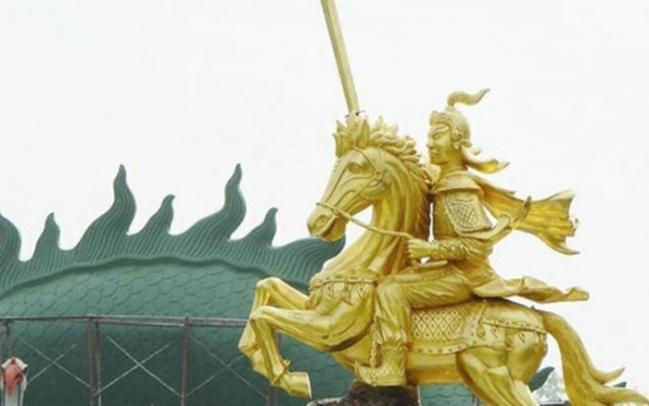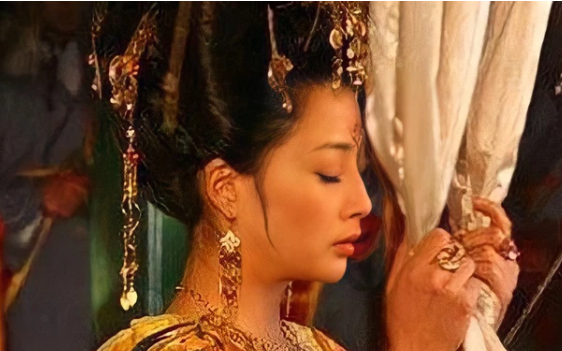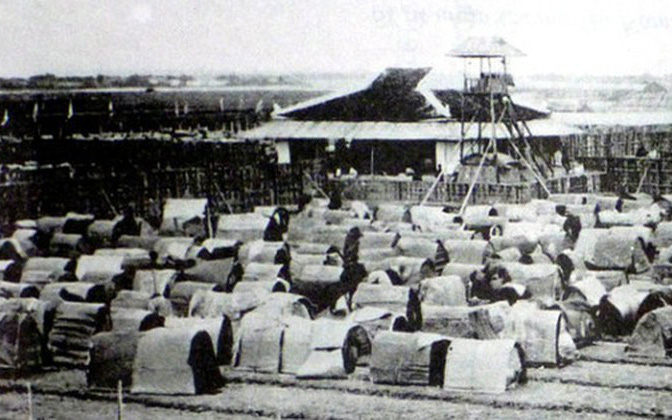Is it appropriate for the Tran Dynasty to force the Ly family to change to the Nguyen surname?
The key coincidence is that Tran Thai Tong’s grandfather was named Ly, so there was a convenient excuse to force the Ly family to change to Nguyen. Not only the Ly people at that time had to change their last name, but also traced back to the previous Ly kings or even the famous general Thuong Kiet had to change their last name.

Ly Thuong Kiet was changed to Nguyen Thuong Kiet during the Tran Dynasty.
The Ly Dynasty is a 200-year-old dynasty in the nation’s history with many outstanding celebrities that are still preserved on the street names. However, the descendants of the Ly dynasty today are quite few. The reason is that when the new Tran Dynasty took over, they used the law to force the Ly people to change to another surname. Kham Viet su Thong giam muc wrote: “April, summer (1232). Giving letters to the ancestors of the king to worship in temples for all to know in the capital and outside the highways”, and commented: ” The king’s ancestor’s name was Ly, so he changed his surname to Nguyen, which meant completely extinguishing the people’s hearts and still remembering the Ly family.
So, is it appropriate for the Tran family to force the Ly family to change to the Nguyen surname?
First, let’s talk about the reason for changing them due to taboo. This is not an invention of the Tran Dynasty, but due to the influence of the feudal culture in China. The cavalry of relatives began to form in the Zhou Dynasty (Tale story of the Qi Huan Dynasty: People in the Zhou Dynasty worshiped the deceased by their nicknames, also known in life, hidden at death). Later, Confucius raised his point of view in the Spring and Autumn Sutra when “do not copy the names of the elders, do not copy the names of parents, do not copy the names of ordinary people”.
In the Qin Dynasty (306-255 BC), Qin Shi Huang became interested in abstaining from the king’s name. Tan Thuy Hoang’s surname is Chinh, whose surname is Chinh, so it is forbidden to use the word Chinh but change all Chinh to a synonym of Doan. And afraid that people would mention his father Tu Chu, so Qin Shi Huang also banned the word Chu and changed it to Kinh. Later generations following the Qin Dynasty should follow the tradition of strictly controlling the banning of the king’s name and then raising the level of development and expansion. After Luu Bang founded the Han Dynasty (206 BC – 220), he abstained from using Bang and changed it to Quoc, Lu Hau abstained from Tri, Han Van De Luu Hang abstained from using Hang, so he changed it to Lowercase… However, during the Qin Dynasty or Han, the abstinence is only used for the kings of the dynasty or at best, going back to a life like Qin Shi Huang. By the Jin Dynasty (265-420), the taboo was stricter with more complicated rules when it was 7 generations of the cavalry. Later dynasties had different regulations on taboos, but they tended to add more and less.
Around the time the Tran Dynasty replaced the Ly Dynasty, in China at that time was the Song Dynasty, which was very strict about cavalry. The Book of Dung’s Three Pens writes: “The custom of the court is to love literature, so when discussing about the word hui, the rituals want to increase, the shrines are up to more than 50 words. The student who took the test encountered a word that he doubted and did not dare to use. Any exam book that violates the rules will be tacitly damaged“.
The application of cavalry by the Tran Dynasty seems to have been influenced by the Song Dynasty? In fact, not only the Tran but also the Liao, Kim and Mongol dynasties, after annexing the Song dynasty, also followed the cavalry movement even though the Liao, Kim or Mong people did not have a written script before, while the language of is multi-syllable, not monosyllabic like the Han people.
Why do they follow the cavalry movement? The Liao, Kim, and Mong dynasties all liked the rituals and moderation that the Han people created, which especially valued the leader, the king. They modeled on many things in the restraint of the Han people when they placed their rule on the Han people and always applied taboo to the king’s name. In the historical context of the Tran Dynasty at that time, it seems very reasonable to learn from the Northern dynasties the rituals that have been molded for many generations, in which the name of the king of the Tran Dynasty is tacit.
However, what is not satisfactory here lies in the fact that before the Tran Dynasty, the previous dynasties in our country did not mention the taboo at all. In the book “Study on Vietnamese characters through the dynasties” by researcher Ngo Duc Tho, there is a record of the study of ancient cavalry in our country. Accordingly, in the Dinh – Tien Le dynasties, on the scriptures that were discovered in the ancient capital of Hoa Lu, no written words were found. During the Ly dynasty, out of 9 units of Kim Thach Van (8 epitaphs are now stamped at the Han Nom Institute and 1 bell at the Vietnam History Museum), there are 5 units with 3 names of 3 kings of the Ly dynasty. : 1 word U (Thai To Ly Cong Uan), 2 letters Ton (Saint Tong Ly Nhat Ton), 5 letters Duc (Nhan Tong Ly Can Duc). The letters are all written normally, ie full stroke, no need to write high or in any special style. From that result, the survey team confirmed: From the Ly dynasty onward, our country did not have a rule of abstinence about writing.
The Tran Dynasty was the first dynasty to start participating in the cavalry game, but perhaps not because they wanted to follow the Song dynasty, but considered it as a political trick to let the Ly family fall into oblivion. The key coincidence is that Tran Thai Tong’s grandfather was named Ly, so there was a convenient excuse to force the Ly family to change to Nguyen. Not only the Ly people then had to change their last name, but also traced back to the previous Ly kings or even the famous general Thuong Kiet had to change their surname. In the Dai Viet history summary written in the Tran dynasty, the Ly dynasty was written as the Nguyen dynasty, and the Ly king as the Nguyen king. Eg: “King Thai To’s real name is Uan, surname Nguyen, who lives in Co Phap in Bac Giang“good”Summer, April, Marshal Nguyen Thuong Kiet captured De Cu at the Chan Lap border” (Ly Thuong Kiet, whose surname was Ngo, was given the national identity by King Ly, and then in the Tran dynasty, he was “right” to change it to Nguyen).
So, why did the Tran Dynasty have such a strict command of the Ly family, but later still had a general with the surname Ly to serve the Tran Dynasty (according to historian Ngo Si Lien) or the status quo Ly Dao Tai of Tran Thanh Tong’s reign? It can be believed that the abhorrence of the word Ly was only tightened in the early days when the Tran dynasty did not have a firm foothold while still fearing that people’s hearts would turn to the Ly family, fearing that there would be many people with the Ly surname emerging. annoying.
But later, the Tran Dynasty had a firm foothold in the hearts of the people, especially after 3 generations of Thai Tong, Thanh Tong, and Nhan Tong, leading the army and people of the country 3 times to defeat the invaders of the Nguyen Dynasty. At that time, the taboo of the word Ly was no longer strictly controlled. Even Tran Anh Tong used cavalry to honor the Ly family, which is also the maternal surname of King Tran because Tran Thanh Tong is the son of Princess Thuan Thien or precisely, Tran Thanh Tong is Ly Hue Tong’s grandson. In September 304, Tran Anh Tong issued a decree prohibiting writing 8 letters of the Ly Dynasty: Uan (Ly Cong Uan), Ma (Ly Phat Ma), Ton (Ly Nhat Ton), Duc (Ly Can Duc), Hoan (Than Tong Ly). Duong Hoan), To (Brother Tong Ly Thien To), Can (Cao Tong Ly Long Can), Sam (Hue Tong Ly Hao Sam).
In the Tran kings, Tran Anh Tong was the most active in giving the word cavalry. Of the 8 abstinence orders of the Tran dynasty that are still recorded, there are 5 abstinence orders issued by Tran Anh Tong. King Tran Anh Tong also used cavalry to honor a controversial character in the Tran family, Tran Lieu. Although Tran Lieu was once defeated after the rebellion in the Cai River, Tran Anh Tong is also a direct descendant of him (Tran Anh Tong’s paternal grandmother or Tran Nhan Tong’s mother is Tran Lieu’s daughter). King Tran Anh Tong also banned the surnames of both previous queens and father-in-law (Tran Quoc Tang).
History records: Giap Ngo, Hung Long year 2 [1294], (Yuan Chi Nguyen year 31). In the spring of February, on the 7th day, the letters of the nation-huy were issued: Thuyen of the king, Kham of Nhan Tong, Hoang of Thanh Tong; of Thai Tong is Canh, of Thai To is Thua, of Nguyen To is Ly; Inner letters: Queen Thanh Tu is Phong, Queen Thuan Tu is Dieu, Queen Hien Tu is Oanh, Queen Nguyen Thanh is Ham.
Ky Hoi, [Hưng Long] 7th year [1299], (Former Dai Duc 3rd year). In the spring of April, the 12th, the proclamation forbidding the writings of the emperors of Kham Minh Dai Vuong and Thien Dao Quoc Mother (Kham Minh’s name is Lieu, Thien Dao’s name is Nguyet; Thien Dao is Lieu’s wife) when writing literature. not used. The words Wei, Low, Nam, Can, To, Tuan, Anh, Tang when writing must be written with less strokes.
at Blogtuan.info – Source: danviet.vn – Read the original article here


